
North American F100F Super Sabre Untitled Aviation Photo 2702904
After the single-seat, supersonic F-100 fighter entered service in 1954, it developed a high accident rate, in part due to pilot inexperience with the Super Sabre. In response North American built a two-seat training version -- the F-100F -- to train new,
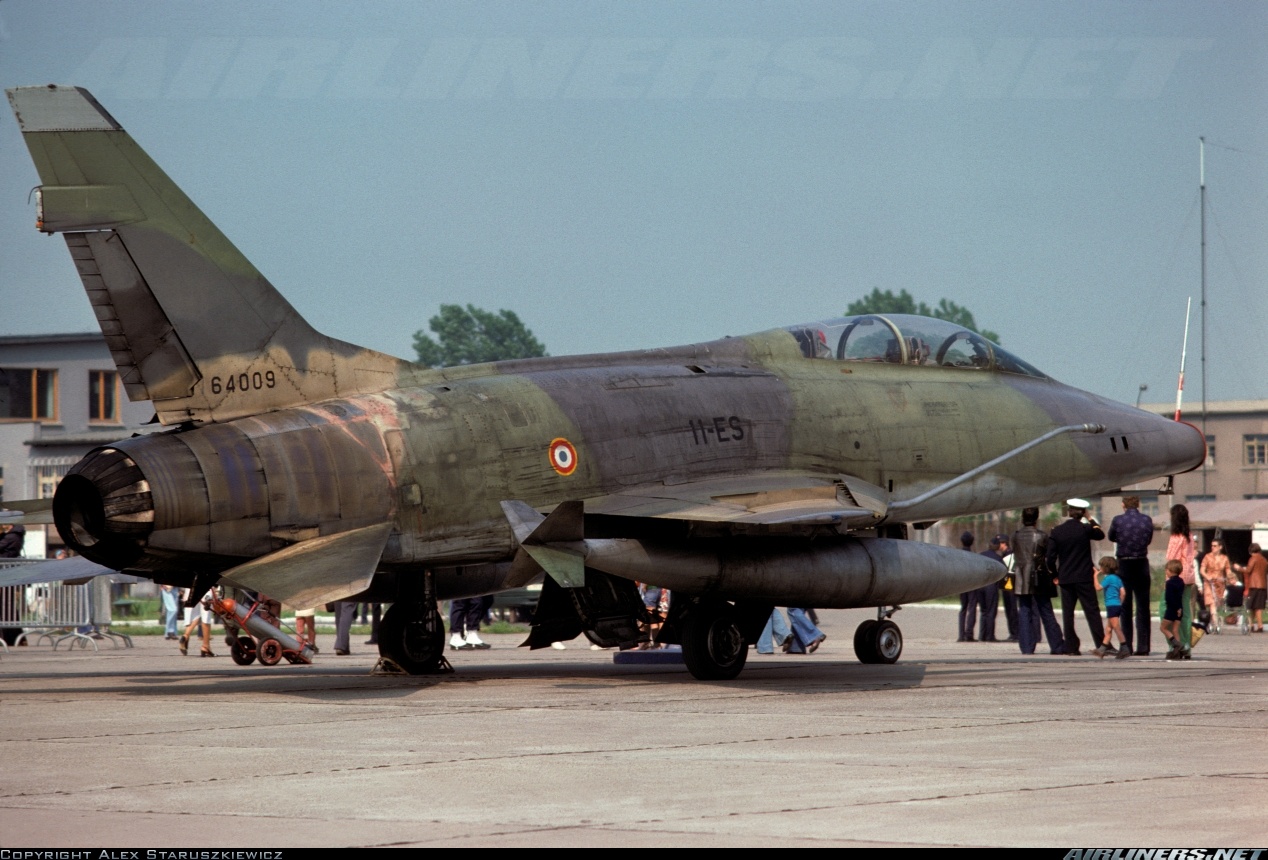
North American F100F Super Sabre France Air Force Aviation Photo
North American F-100 Super Sabre Single-Seat Fighter-Bomber / Air Superiority / Tactical Reconnaissance Aircraft [ 1954 ] Though not without issues early on, the North American F-100 Super Sabre jet evolved into one of the finest American fighter aircraft.

North American F100F Super Sabre Aerial Photo Shoot
The F-100F model started production in January 1957 and 339 aircraft were produced. The differences between the "D" and "F" model can be found on the under the Aircraft Specifications in the "F-100 History Page". This two-seat version of the F-100 was primarily used for training to include initial checkouts in the airplane and instrument training.
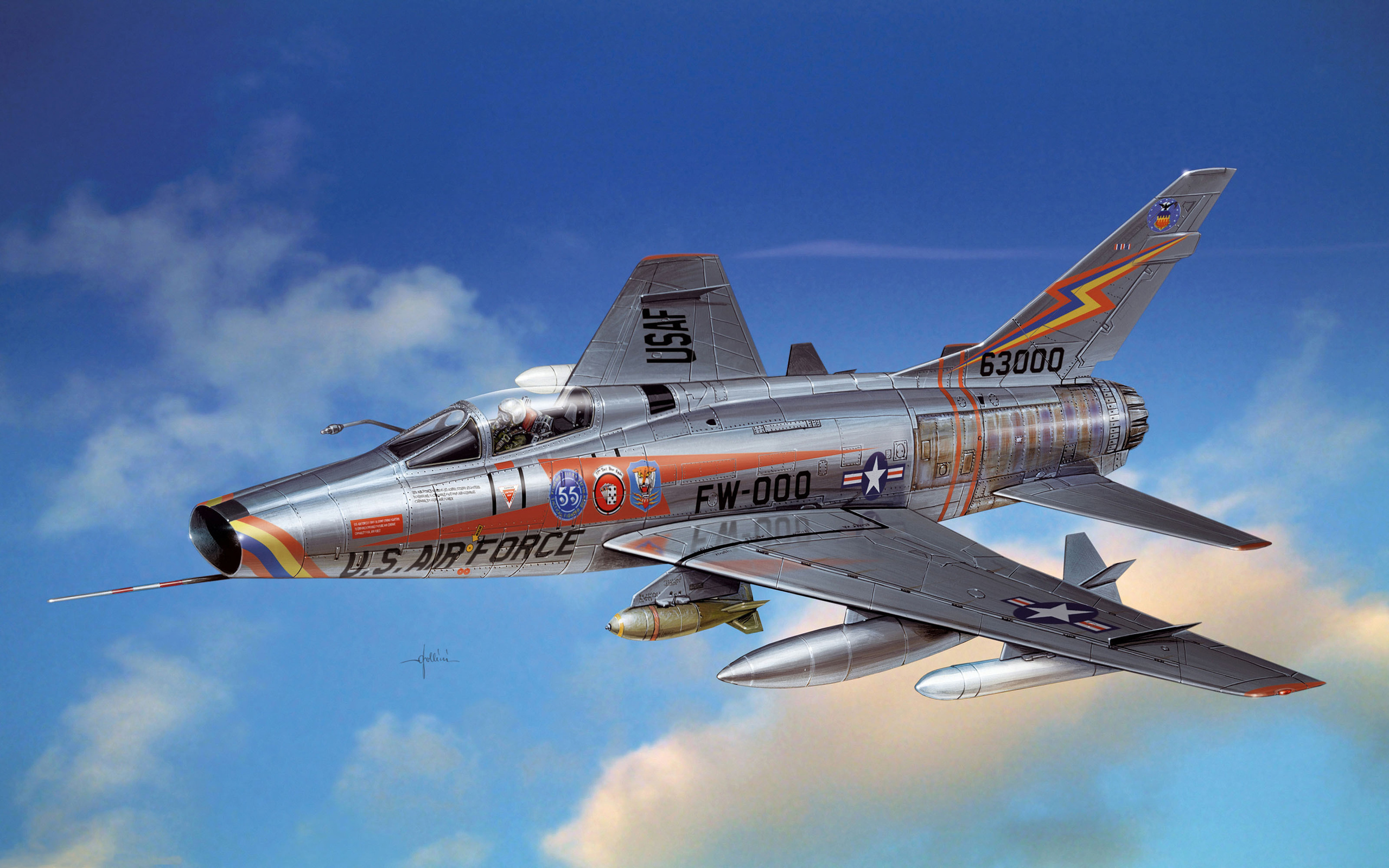
7 North American F100 Super Sabre HD Wallpapers Backgrounds
F-100F Super Sabre Published on September 10, 2021 Review Author (s) Dave Koukol Scale 1/48 MSRP $59.95 Product / Stock # 02840 Company: Trumpeter - Website: Visit Site Provided by: Stevens International - Website: Visit Site Kits Aircraft Background

F100D "Super Sabre" Museum of Aviation
The F-100F Super Sabre is a variant of the North American F-100 Super Sabre, which was a supersonic jet fighter aircraft introduced in the late 1950s and operated primarily by the United States Air Force (USAF). The F-100F was a two-seat trainer version of the original F-100, designed to train pilots for flying the single-seat F-100D and F-100C.
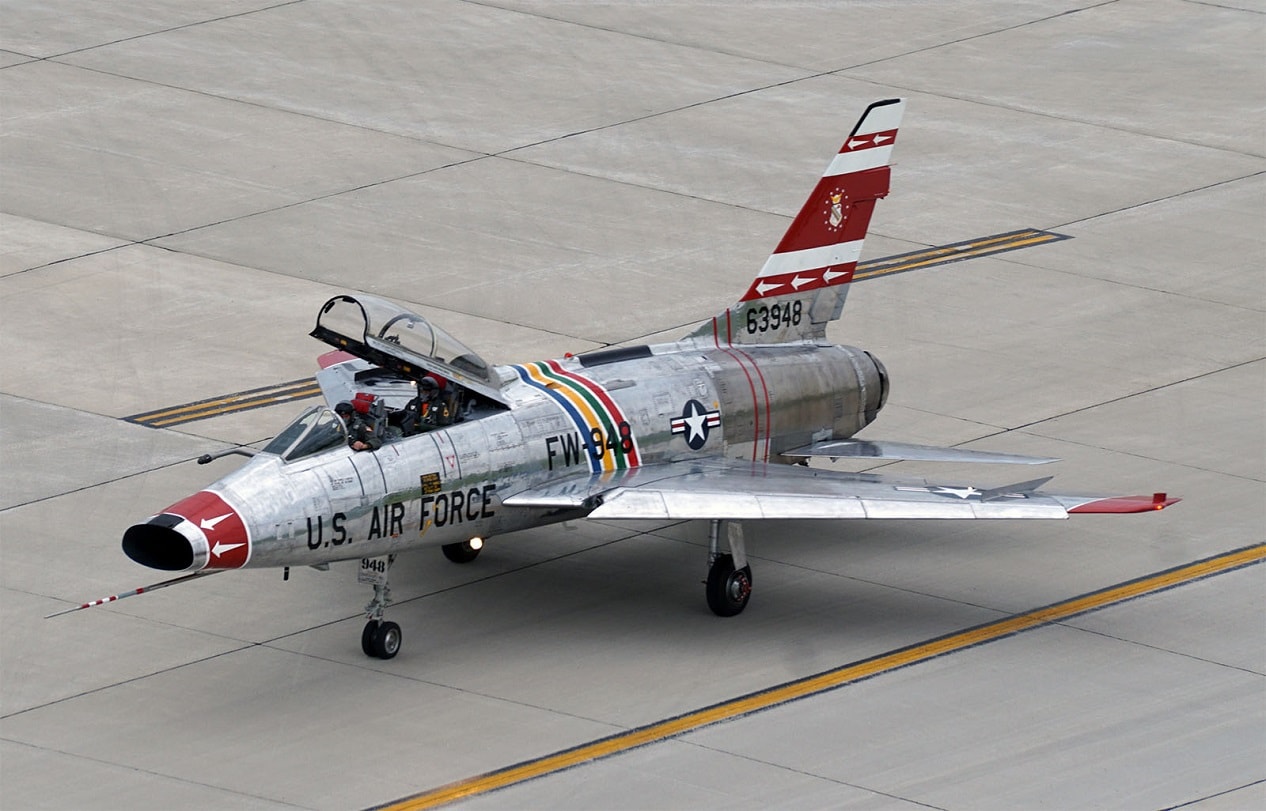
F100 Super Sabre America’s First Supersonic Jet That Changed
Key Points Follow on to the North American F-86 Sabre, named the F-100 Super Sabre. "F-100," popularly shortened to "Hun." First operational supersonic fighter. First aircraft to explore sustained supersonic flight (sometimes tragically). George Welch of Pearl Harbor fame took prototype supersonic on first flight. Collier Trophy in 1954.

North American F100F Super Sabre Untitled Aviation Photo 2331943
Early in the war, the F-105 Thunderchief typically served as the primary strike aircraft, while the two-seat F-100F Super Sabre was the Weasel. Considering that the F-100 was a fairly shady aircraft to begin with, the Wild Weasel mission was unimaginably dangerous. A North American F-100D Super Sabre of the 352nd Tactical Fighter Squadron drops.

North American F100F Super Sabre USA Air Force Aviation Photo
Our F-100F, 58-1232, was active with the 510th Tactical Fighter Squadron attached to the 405th Fighter Wing, and then the 27th Tactical Fighter Wing, and the 352nd TFS, 35th TFW, at Phan Rang Air Force Base in South Vietnam. In 1971, the aircraft moved stateside with the Colorado Air National Guard's 120th Tactical Fighter Squadron.

North American F100F Super Sabre USA Air Force Aviation Photo
A North American F-100F Super Sabre sits on the tarmac at Tan Son Nhut Air Base in South Vietnam in a nighttime shot from October 1965. The airplane belonged to the 481st Tactical Fighter Squadron, as did the sentry on duty (identified as Airman 2nd Class Dennis Niesen).

TheF100SuperSabreFighterBomber Military Machine
Armee de l'Air (100) Armee de l'Air was the first allied air force to receive the F-100 Super Sabre. The first plane arrived in France on May 1, 1958. 85 F-100Ds and 15 F-100Fs were supplied to France, and assigned to the NATO 4th Allied Tactical Air Force. They were stationed in German French bases.

North American F100F Super Sabre Untitled Aviation Photo 0646135
History: In 1949, North American began development of the world's first aircraft capable of breaking the sound barrier in level flight, the F-100A Super Sabre. A familial successor to the F-86 Sabre, the new design was larger, faster and more powerful than its predecessor.
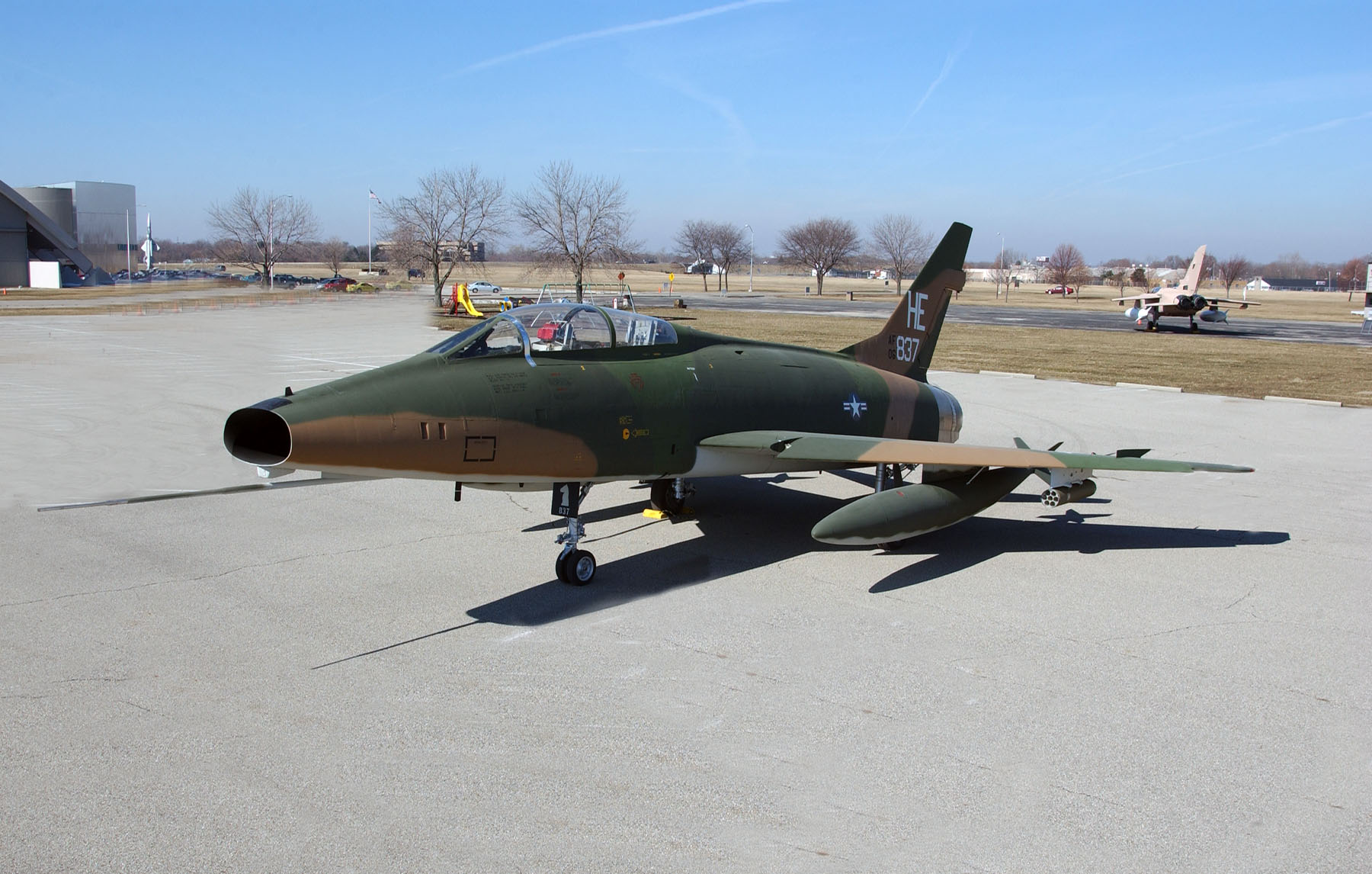
North American F100F Super Sabre > National Museum of the US Air Force
The North American F-100 Super Sabre was the first supersonic fighter. The first YF-100A prototype with its 45 degree swept back wing and afterburning engine exceeded the speed of sound on its first flight on May 25, 1953. The Super Sabre was affectionately known as The Hun (for Hundred).

North American F100F Super Sabre Denmark Air Force Aviation
Looking for F-100f Super Sabre? We have almost everything on eBay. No matter what you love, you'll find it here. Search F-100f Super Sabre and more.

North American F100F Super Sabre Denmark Air Force Aviation
The North American F-100 Super Sabre is a swept wing supersonic jet fighter that served with the US Air Force from 1954 to 1971 and the Air National Guard until 1979. Additional Images Aircraft Specs Wingspan 38 feet, 9 inches Length 50 feet, 4 inches Empty weight 21,712 pounds Powerplant 1 Pratt & Whitney J57-P-21A Armament 2 20mm cannons
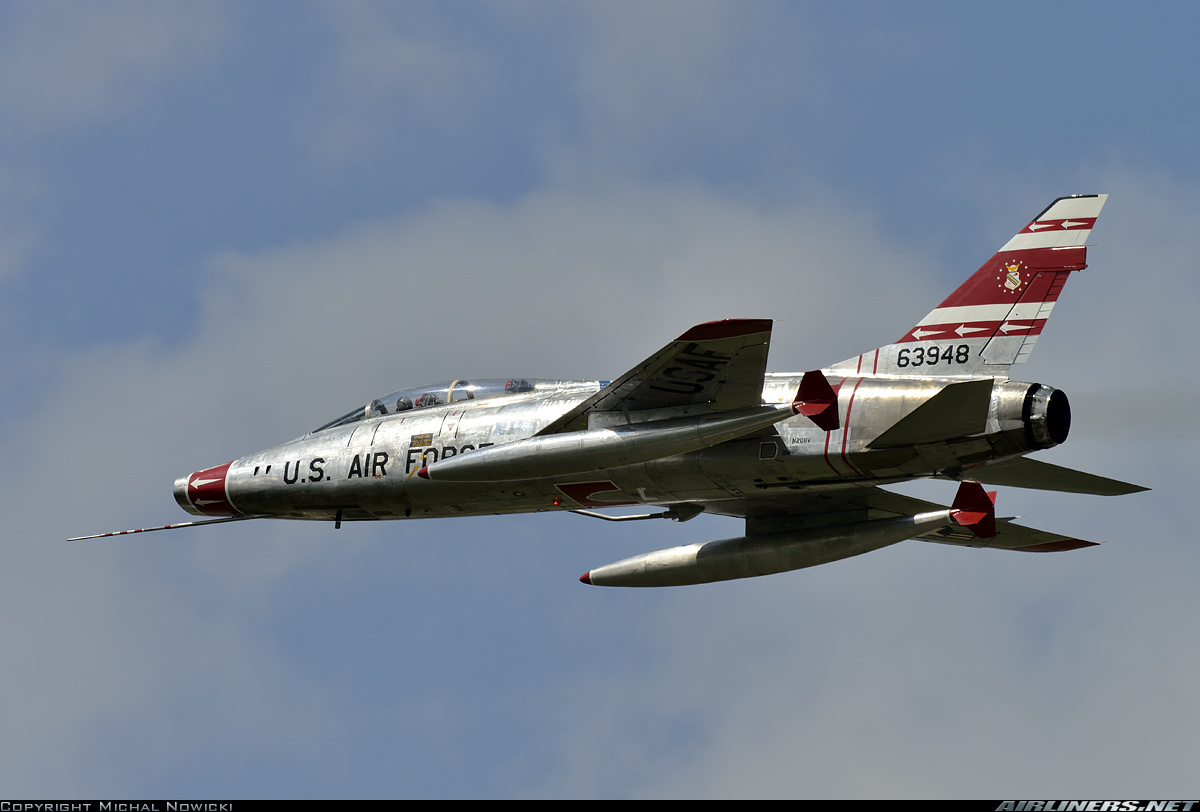
North American F100F Super Sabre Untitled Aviation Photo 2546427
The North American F-100 Super Sabre is an American supersonic jet fighter aircraft designed and produced by the aircraft manufacturer North American Aviation. The first of the Century Series of American jet fighters, it was the first United States Air Force (USAF) fighter capable of supersonic speed in level flight.

North American F100F Super Sabre USA Air Force Aviation Photo
The North American F-100 Super Sabre is an American supersonic jet fighter aircraft designed and produced by the aircraft manufacturer North American Aviation. The first of the Century Series of American jet fighters, it was the first United States Air Force (USAF) fighter capable of supersonic speed in level flight. [3]